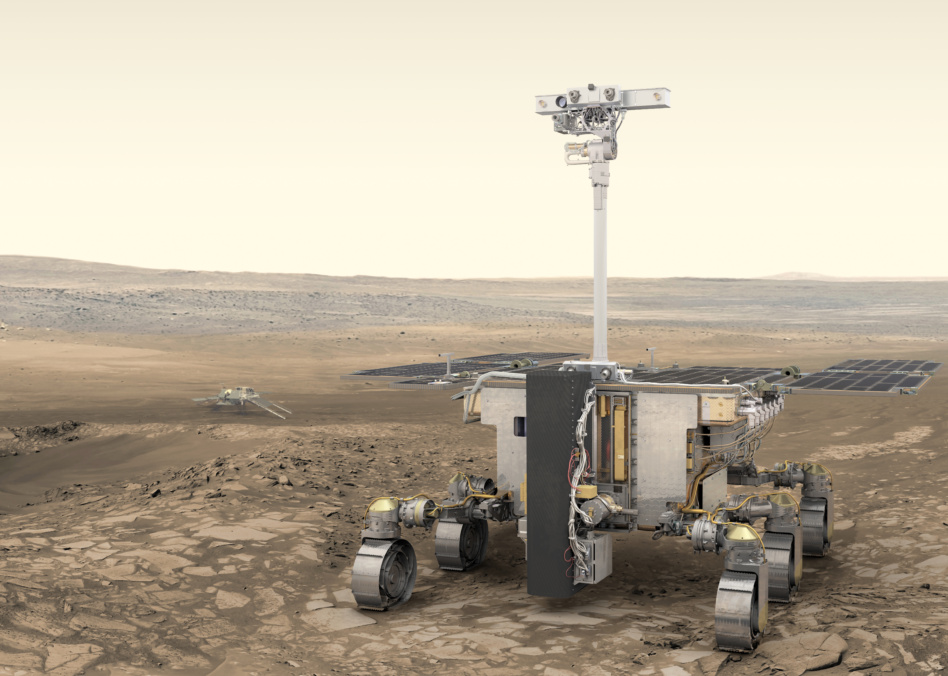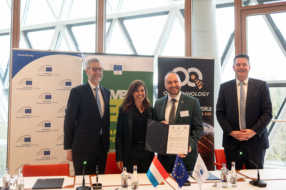ESA has tapped Airbus to build a landing platform for Europe’s beleaguered ExoMars rover as the delayed mission hopes to reach Mars in 2030.
The UK-built rover, also known as Rosalind Franklin, was supposed to launch to the Red Planet in 2022 aboard Russia’s Proton rocket after years of delays and substantial cost overruns. The Russian space agency was also expected to provide the landing platform for the rover. However, the mission was suspended after Russia’s invasion of Ukraine prompted Europe to halt all scientific cooperation with Russia.
ROSCOSMOS joined the ExoMars project in 2012 after NASA withdrew due to budget constraints.
To the rescue: ESA member states decided to rescue the mission—Europe’s first rover set to land on Mars—by investing an additional €360M ($390M) into the project. Airbus’ contract is worth £150M ($194M), according to the UK Department of Science, Innovation and Technology.
The €1.3B ($1.35B) mission, which is expected to launch in 2028, includes a rover that’s fitted with a two-meter drill designed to search for traces of life underneath Mars’ arid surface. Astrobiologists think that the ability to reach deeper soil layers that are not immediately battered by cosmic radiation gives Rosalind Franklin a good shot at finding traces of life if there ever has been any on Mars.
Airbus’ work will include a landing structure, a propulsion system to provide braking, and landing gear to stabilize the platform as it touches down. The platform will be fitted with two ramps to enable the operators to choose the least risky route for the rover to disembark upon landing.
Look back: Rosalind Franklin will be Europe’s third attempt to soft land on Mars—and the first following two failures.
- Beagle 2 reached the Red Planet’s surface safely in 2003, but a botched deployment of a solar panel prevented the lander from establishing contact with Earth.
- The Schiaparelli module crashed in 2016 due to an alleged software glitch.





